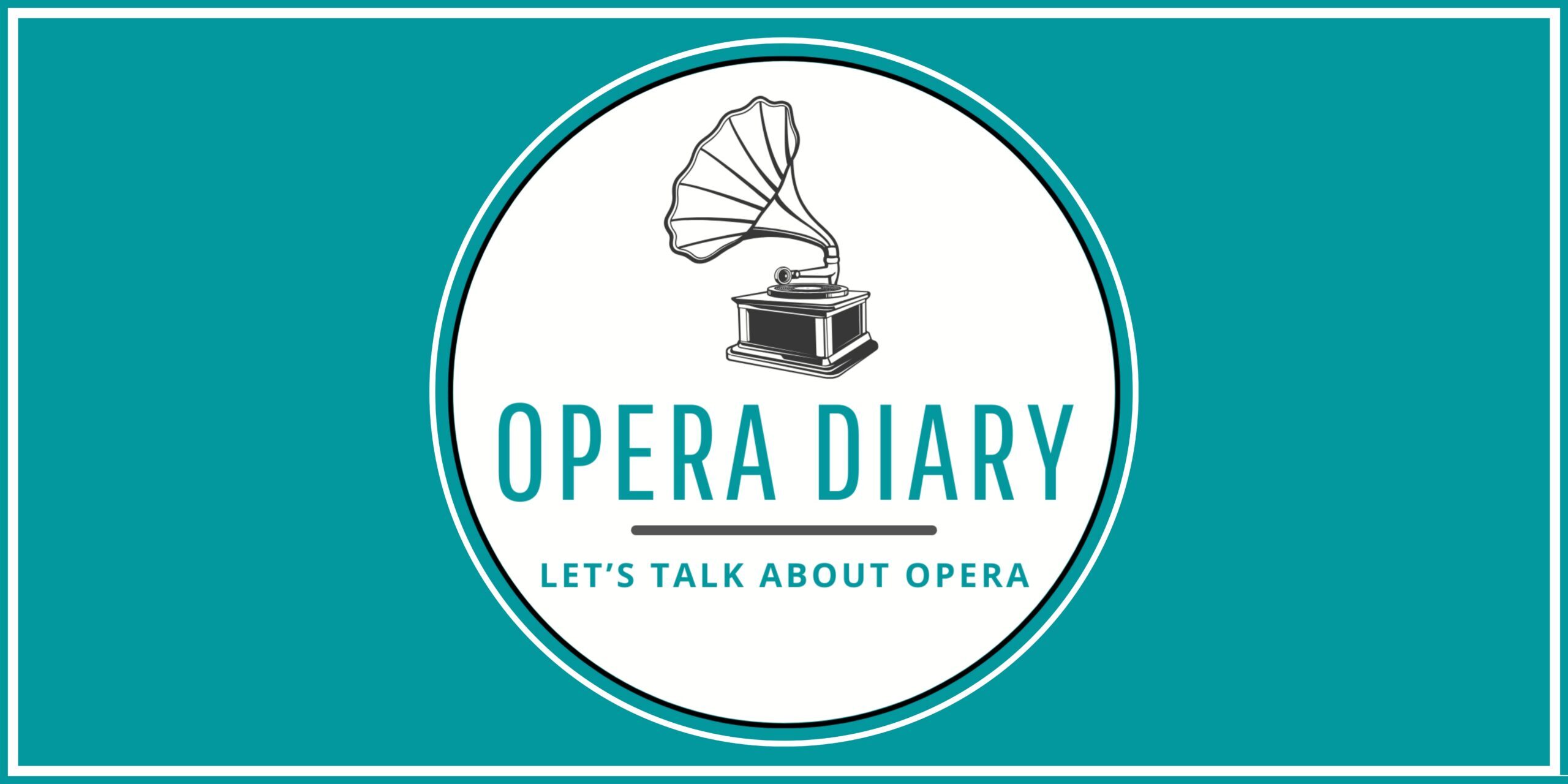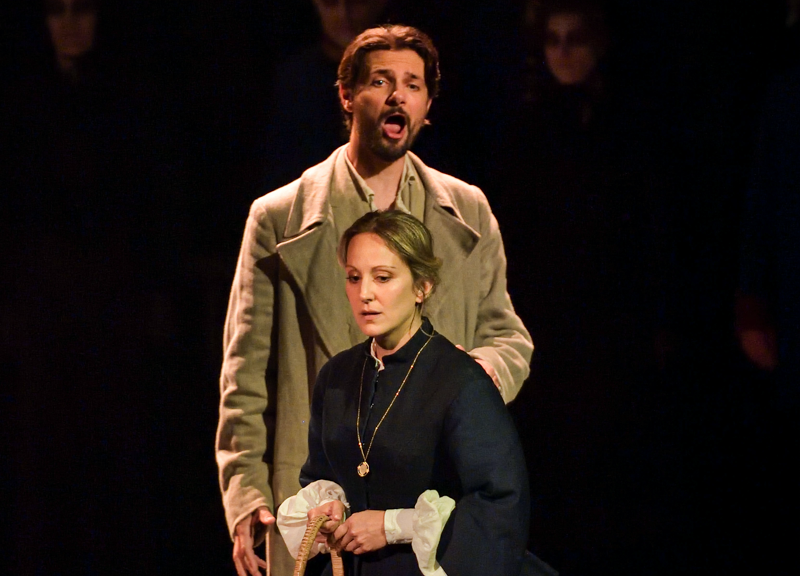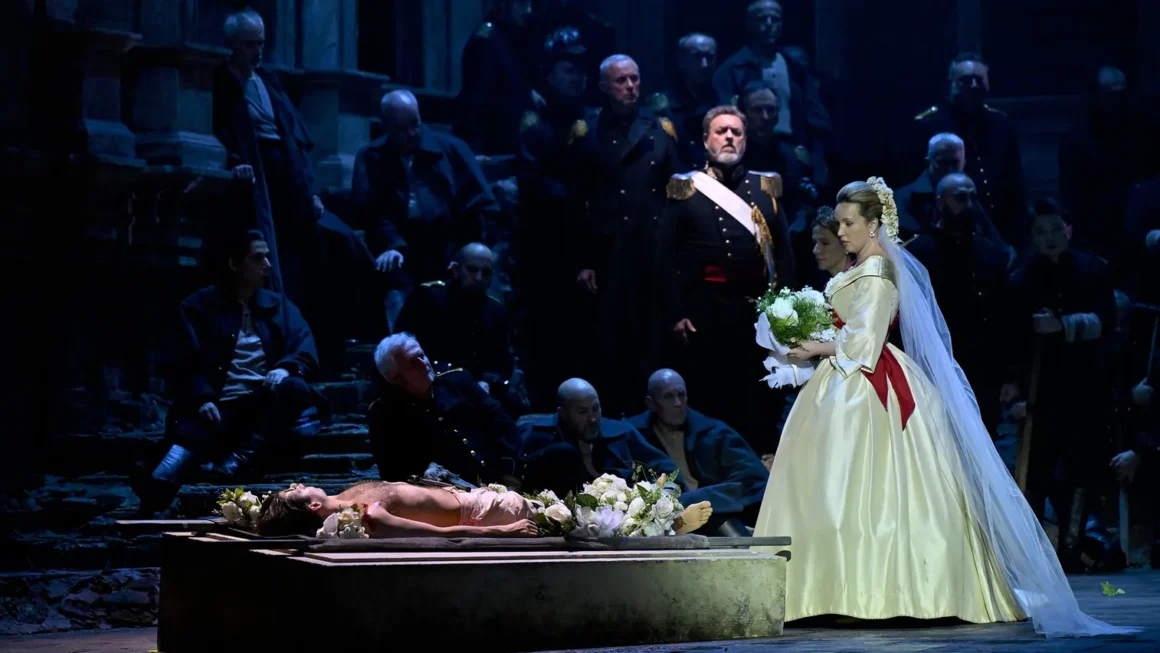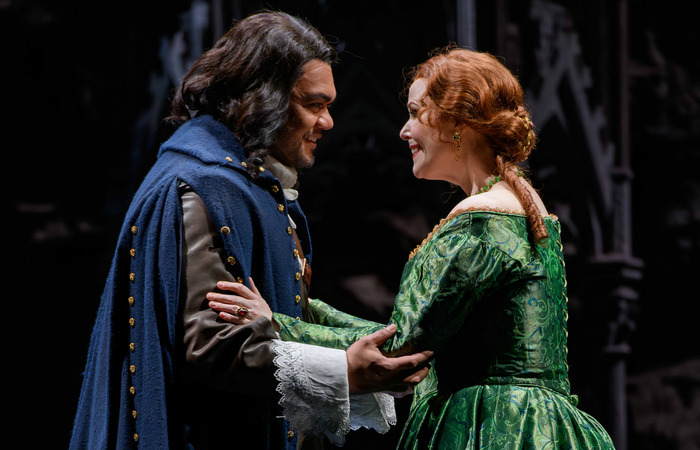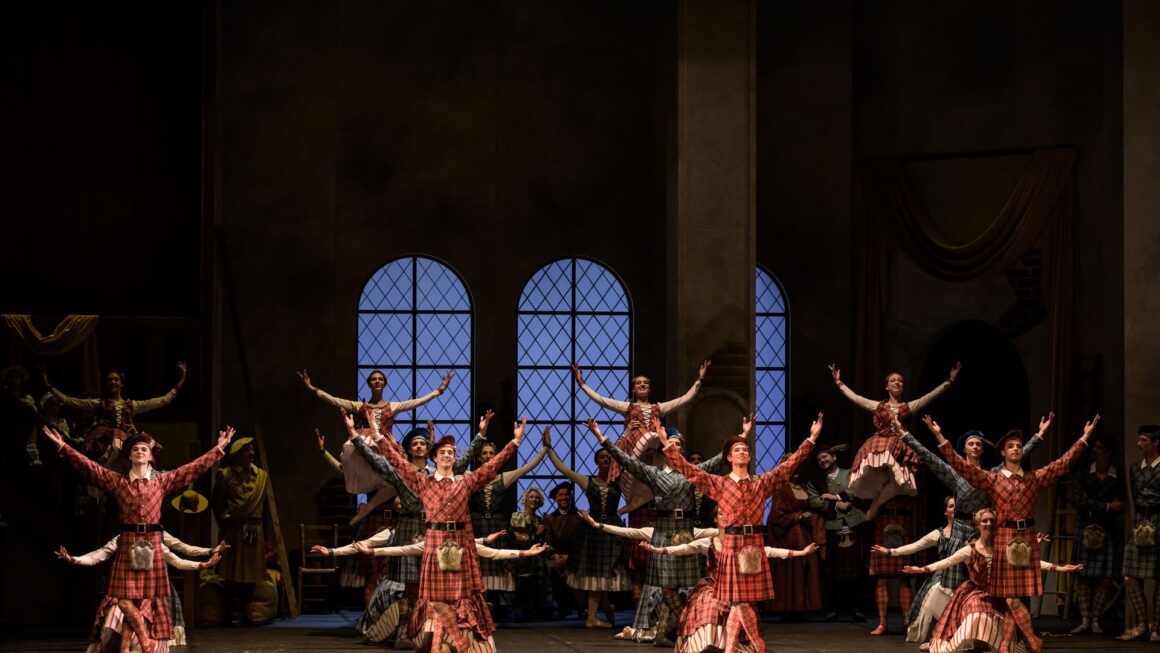But a ghost is not a corpse (…). It is a living being. Only its body stems from the soul: it has no surplus flesh, no hunger, no thirst, no need for sleep. (…) It is not tethered to the ground: wherever it may be, it is also elsewhere at the same time. This is how one of the main characters in L’invitée by Simone de Beauvoir defines a revenant. In many ways, the Faust performed at the Théâtre National de l’Opéra-Comique might be described in much the same terms. Having emerged from the shadows of a long-forgotten past, the canonical version, imbued with theatrical charm thanks to spoken dialogue (and more besides!), glides across the stage, leaving its traces both upon the boards and in the hearts of an audience rediscovering the work.
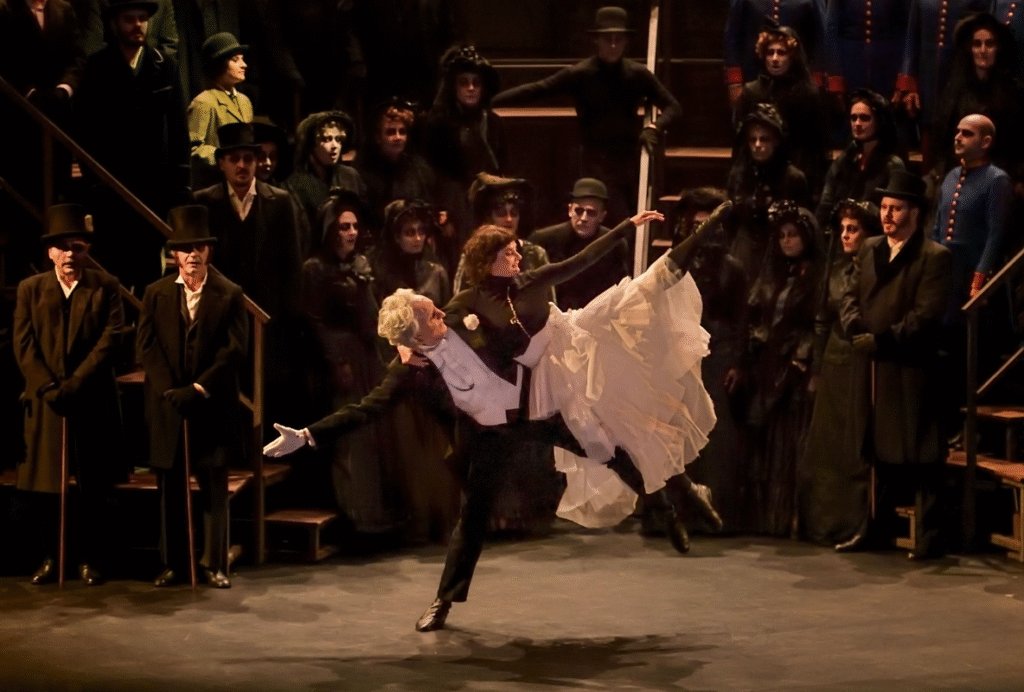
For although we recognise the music, the plot, and the characters, the fusion achieved between Denis Podalydès’s staging, Louis Langrée’s musical direction, and the revival of spoken dialogue in place of sung recitatives gives the impression of rediscovering the opera as Gounod originally intended it. The dramatic conditions, which now allow for a fuller development of the characters’ intentions – and consequently of the stories that shape the narrative – are more illuminated and, as a result, more richly savoured. We shall not attempt to exhaustively detail the myriad merits of this production (quite evidently the standout production of the 2024/2025 season in the view of this writer) but we hold a deep conviction that its success is, above all, the fruit of a collective effort.
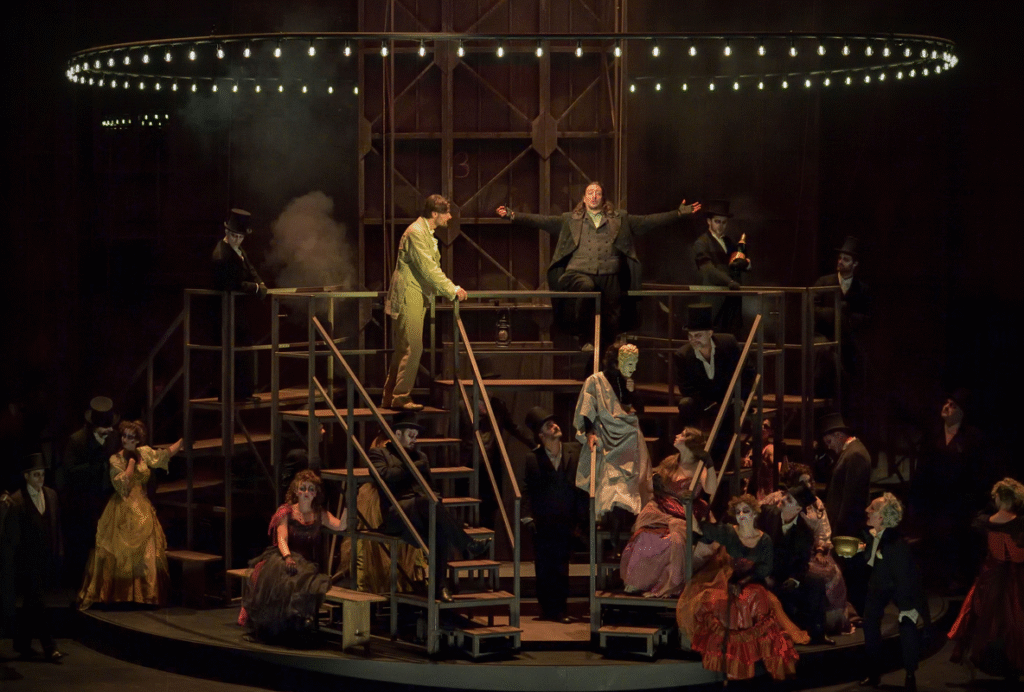
Beginning with a Faust of seemingly inexhaustible resources. If that is not yet the case, it will soon be so: the version delivered by Julian Dran is poised to become one of the most acclaimed interpretations among contemporary portrayals of the character: a role for which his talents are a perfect match. The tenor’s understated elegance only serves to heighten the power of his voice: warm, supple, and capable of elevating even the most contradictory impulses of the character to emotional heights (would you like a glimpse? Have a look at his cabaletta, available on YouTube: power, command of language, and unwavering commitment combine to ensure you won’t be forgetting it anytime soon…). It is no exaggeration to say that, from now on, each of his Fausts, wherever they may be performed, will deserve the keenest interest and the audience’s deepest appreciation.
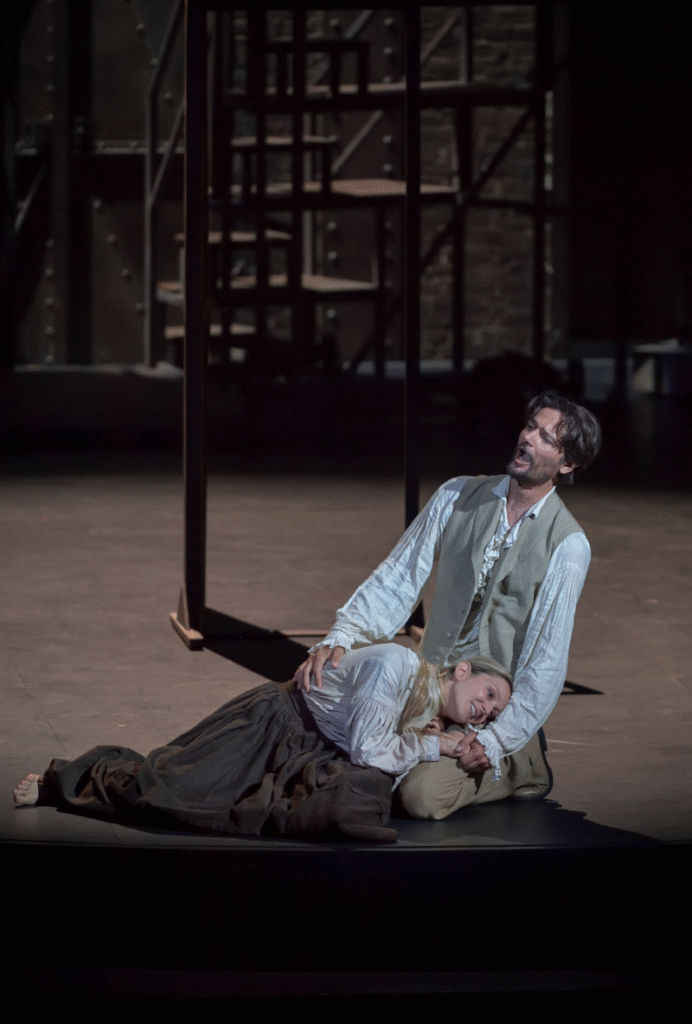
For a superlative Faust, one must have an equally magnificent Méphistophélès: indulge in the incomparable performance of the exceptional Jérôme Boutillier. The stage is his playground: he delights in it, he delights us, casting a spell with the power of his voice and that art of declamation which, before having the chance to witness him on stage, one might (mistakenly, and fortunately so!) have thought consigned to oblivion. There is no use trying to separate the opera singer from the actor: he is a complete artist, who offers the very best of his craft on stage and who, like the interpreter of the title role, is on the path to becoming (if he is not already) one of the finest and most finely tuned embodiments of Méphisto’.
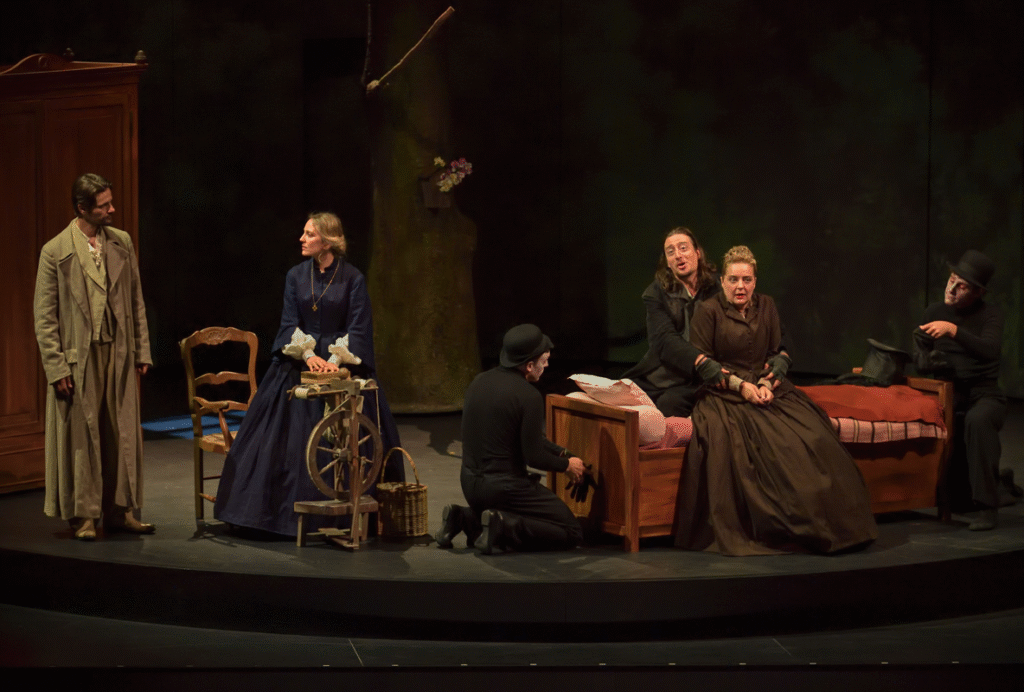
The share of feminine charm and ethereal sensitivity falls to Vannina Santoni, who continues to dazzle us with her singing and remarkable dramatic talent. An unforgettable memory remains of her Il était un roi de Thulé, sung as a violent storm broke over Paris after a sweltering summer’s day. She wraps her Marguerite in a shyness, a restraint that only heightens the intensity of the character’s turmoil, especially in the opera’s final scenes, where she delivers a heart-rending portrayal of the young girl who, almost unwittingly, becomes a child-killing mother. Her voice is flawlessly projected, effortlessly soaring above choir and orchestra: as a true heir to Mirella Freni in this very repertoire, she embraces every contrasting nuance of a character whose path is as serpentine as it is musically and theatrically credible.
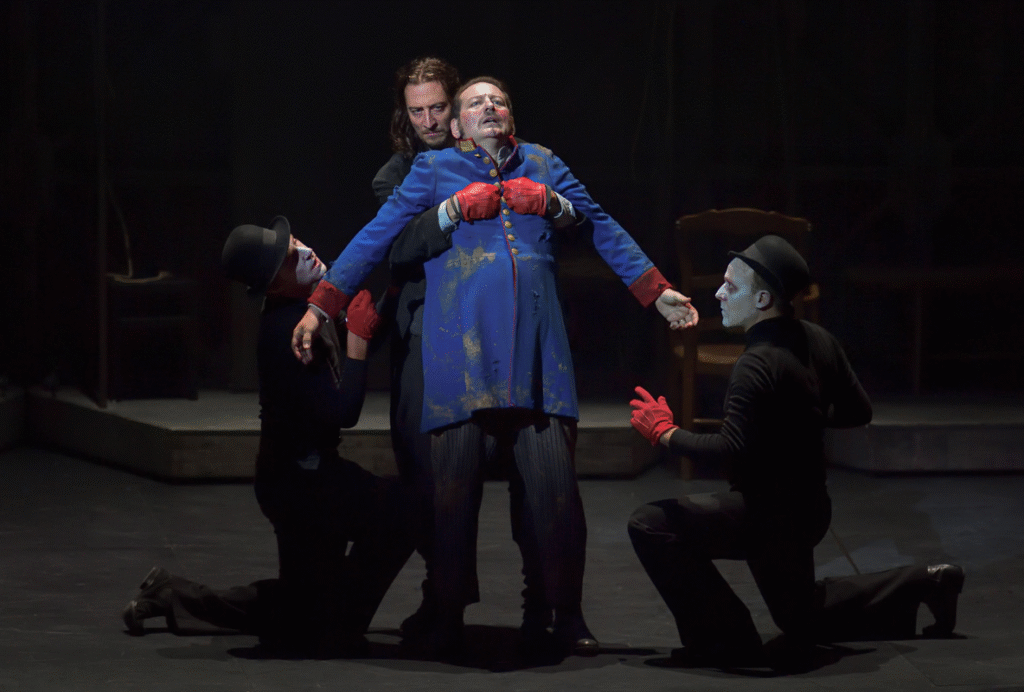
Our warmest applause goes to Lionel Lhote (Valentin), with his dignified bearing and finely crafted vocal line, exuding scorn in his thunderous Marguerite ! Sois maudite ! (even as we write these words, we’re still getting goosebumps!). Kudos also to Anas Séguin, a daring Wagner whose vocal feats seemed effortlessly achieved, and to the inimitable Dame Marthe of the ever-excellent Marie Lenormand. And what can one say of Juliette Mey? A touching sincerity radiates from her Siebel, blending sweetness and innocence, her glowing voice marking her out already as one of the finest mezzos of her generation.
More alive than ever, this Faust (and not its better-known version), though left in a ghostly state for far too long, now proves, thanks to the indelible impression left by the performances at the Opéra-Comique, that its survival is assured. We now understand why it took so long for it to re-emerge: only a production of such opulence and calibre could do justice to the work as it truly deserved.
::::::::::::::::::::::::::::::::::::::::::::::::::::::::::::::::::::::::::::::::::::::::::::::::::::::::::::::::::::::::::::::::::::::::::::::::::::::::::::::::::::::::::::::::::::::::::::::::::::::::::::::::::
FAUST
Opera in one prologue and four acts by Charles Gounod
Libretto by Jules Barbier and Michel Carré based on Goethe’s Faust
Original version with spoken dialogue, premiered on March 19 1859 at the Théâtre Lyrique
Louis Langrée | Direction · Denis Podalydès | Staging · Eric Ruff | Scenography · Christian Lacroix | Costumes · Bertrand Couderc | Lights
Cast: Julien Dran | Dr. Faust · Jérôme Boutillier | Méphistophélès · Vannina Santoni | Marguerite · Lionel Lhote | Valentin · Juliette Mey | Siebel · Marie Lenormand | Dame Marthe · Anas Séguin | Wagner · Alexis Debieuvre and Léo Reynaud | Actors · Julie Dariosecq and Elsa Tagawa | Dancers · Orchestre National de Lille · Choeur de l’Opéra de Lille · Credit photos: ©Stefan Brion.
(For further informations) Link to the Théâtre National de l’Opéra-Comique website: Faust (2025 production)
